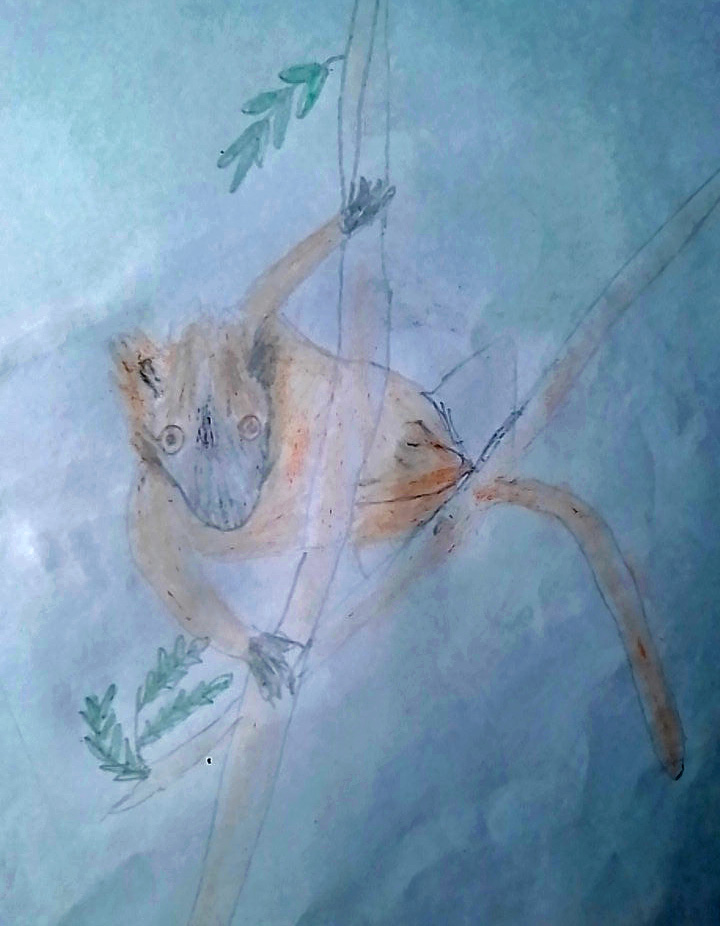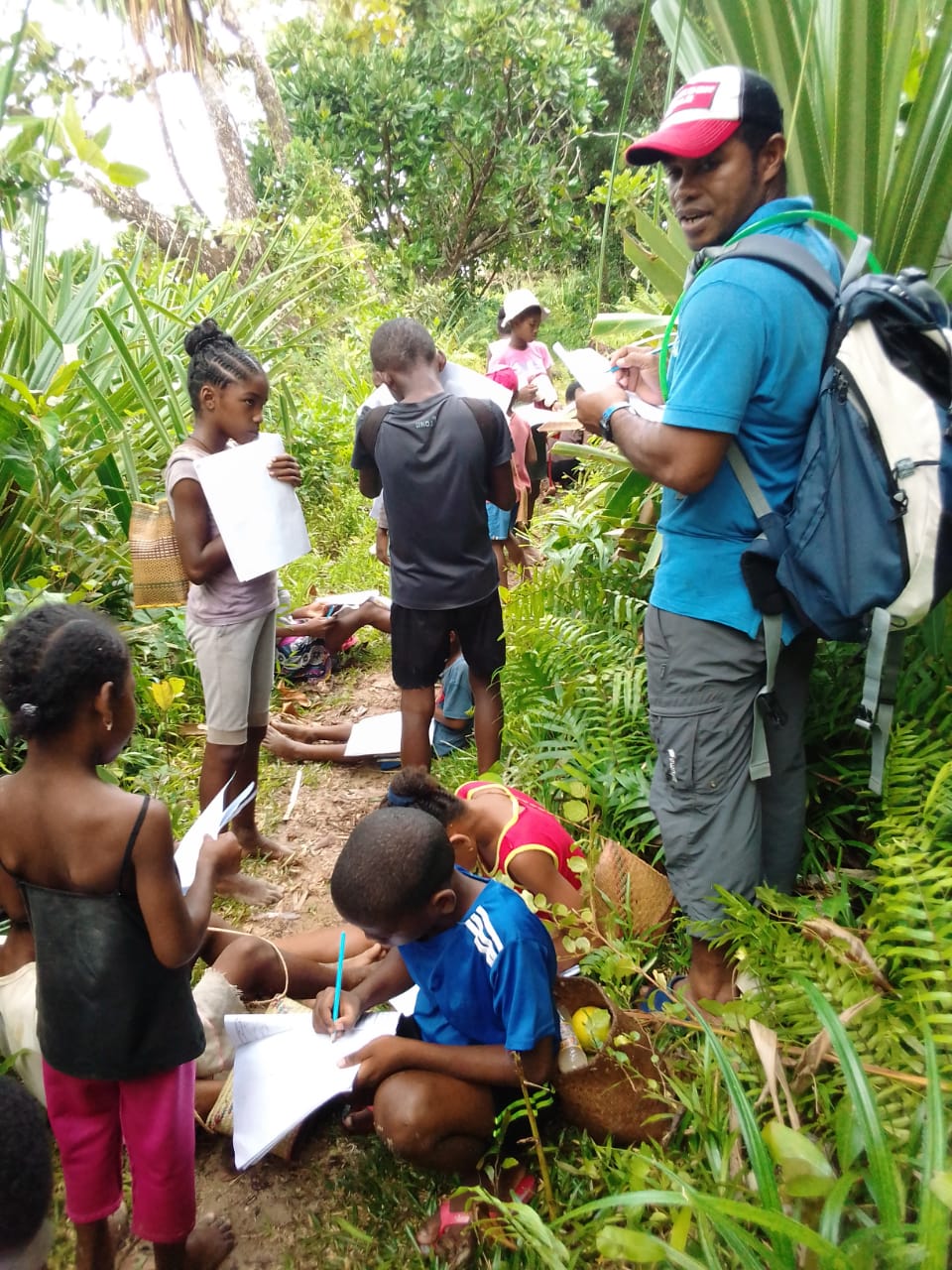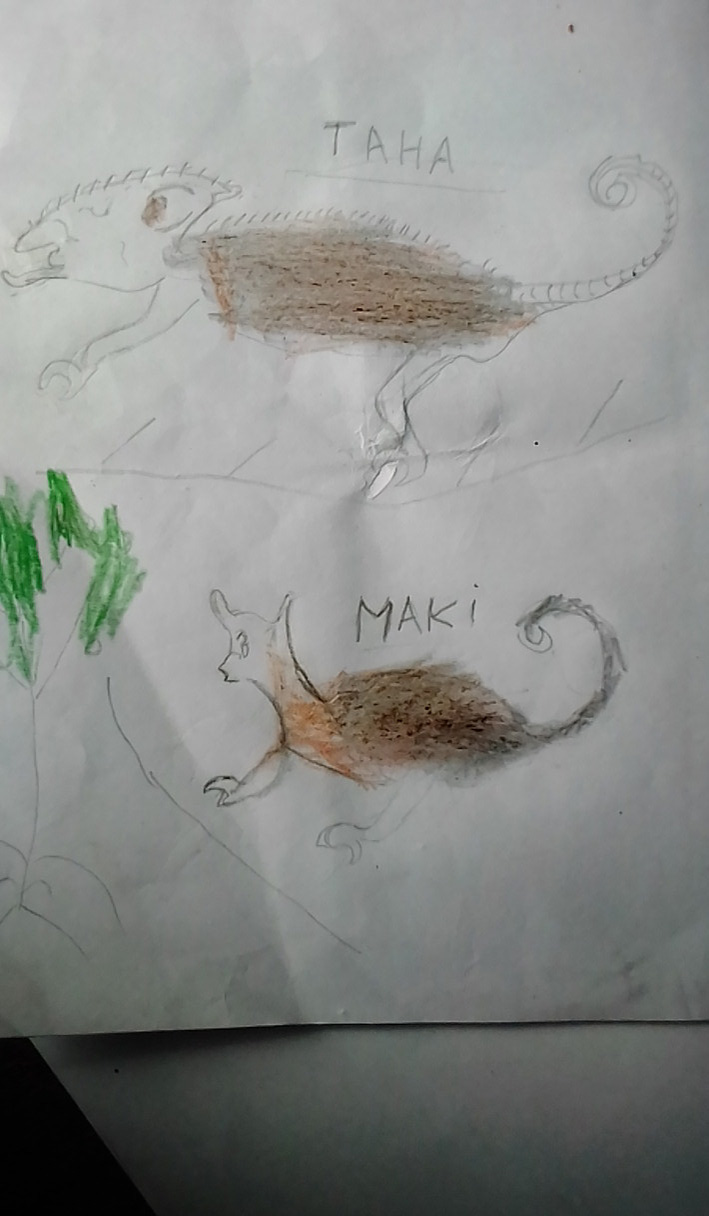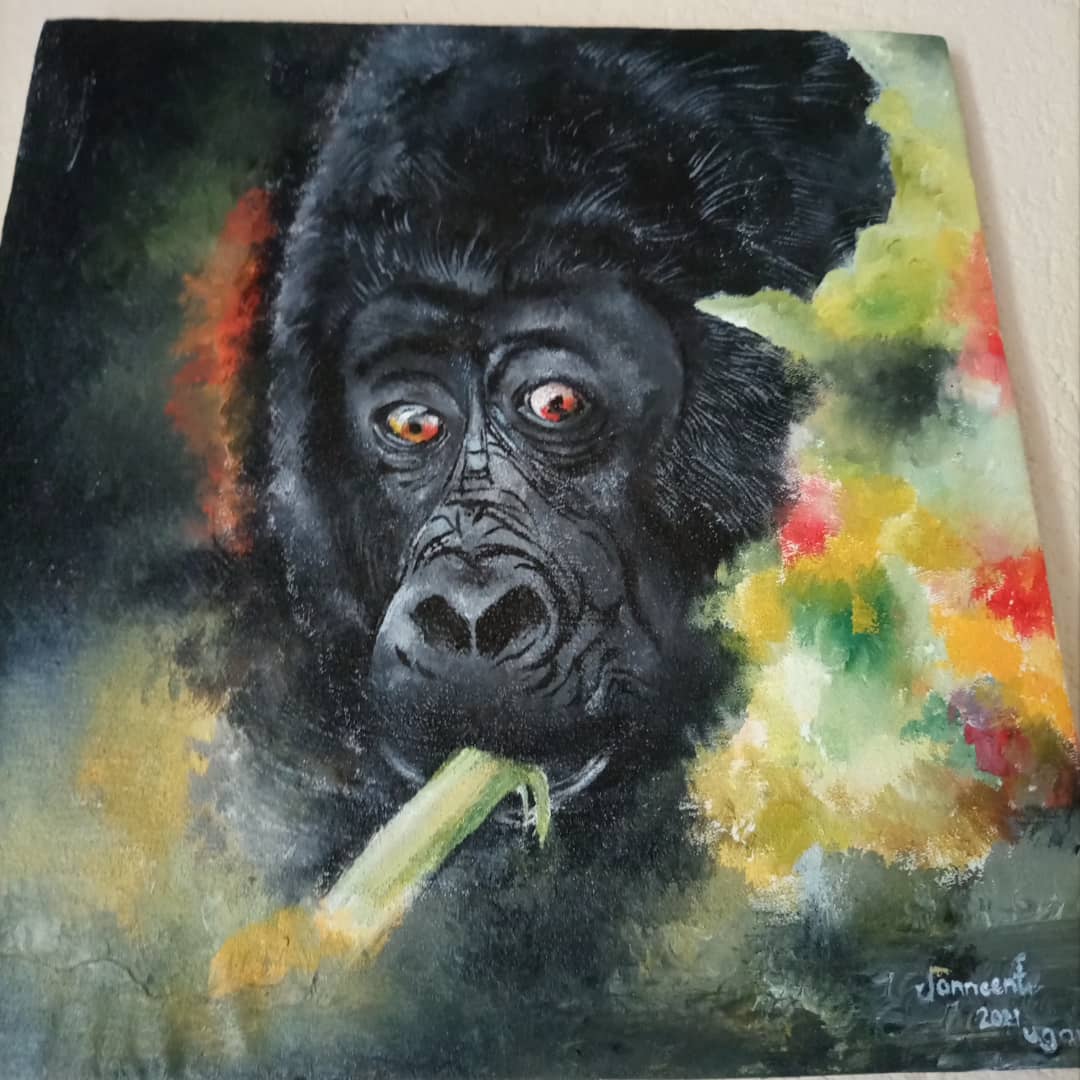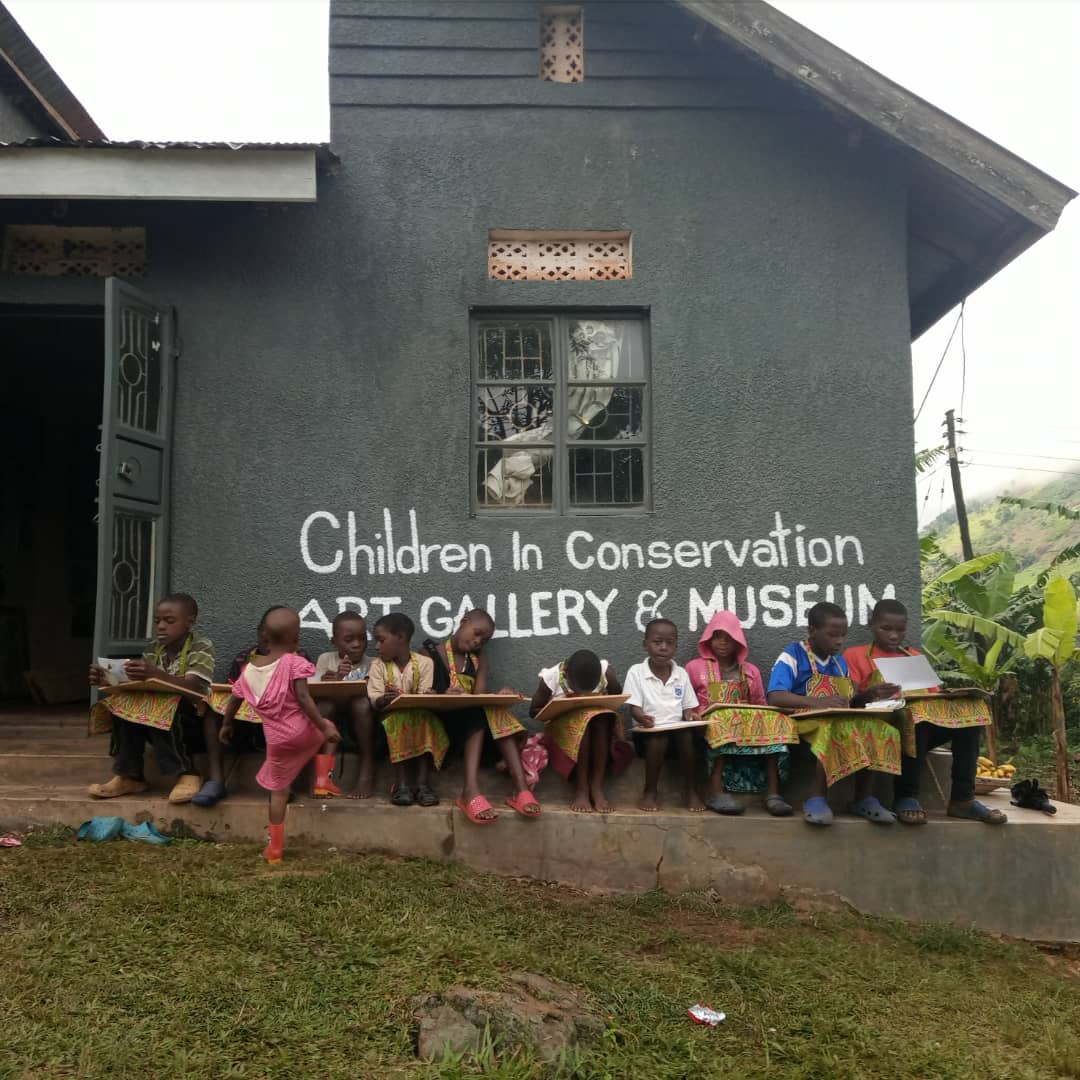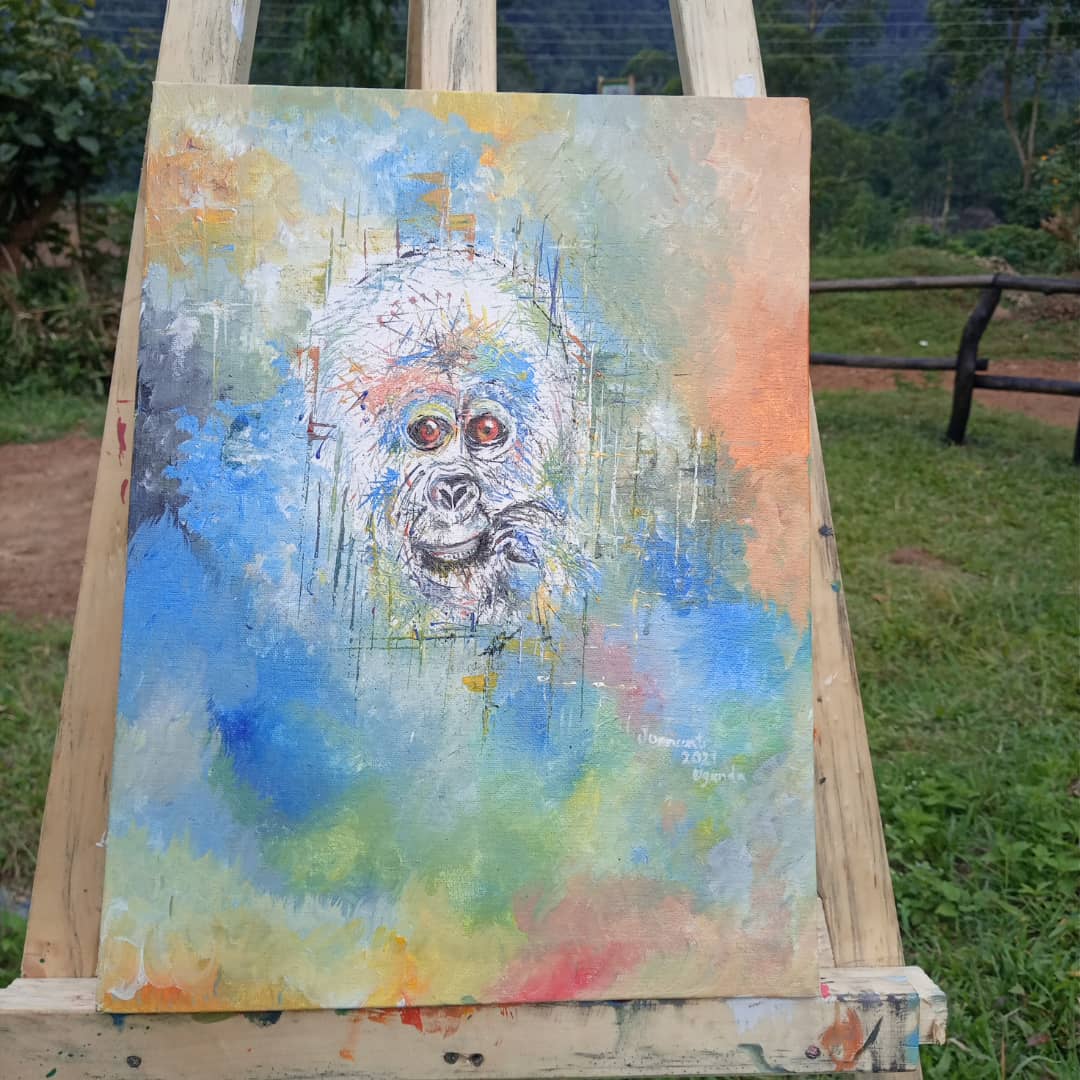This last year has been challenging in so many ways for all of us, and yet it was also a year of expanding opportunities in primate conservation and education outreach.
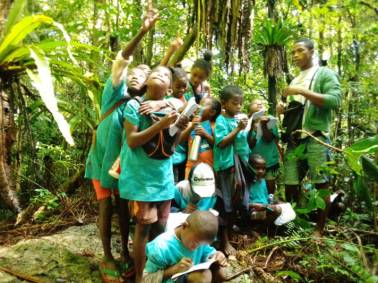
For the PICC program in Madagascar we have developed a creative solution to closed borders which kept us at home but still allowed us to support our Malagasy staff with a teaching salary and funds for materials for the children in the Masoala peninsula villages. We truly appreciate the teaching skills and passion for education of Pascal Elison (PICC team) and the way he has stepped in to fill this very important leadership role. Pascal has led four mini-PICC sessions and has ignited a love of lemurs and the forests in many children living adjacent to the rainforests. Local teachers and village elders have been included in these programs and other villages are lining up for their turn, building sustainable capacity. Read about three of the programs here and here.
One benefit of spending a lot of time on lockdown in Zoom and WhatsApp calls was the amazing connections we built with like-minded folks around the world to develop a growing number of collaborations. From children’s conservation programs in Kenya, to chimpanzees in Uganda, and mountain gorillas in the Bwindi Impenetrable National Park, our plans to educate and engage children with the PICC program are blossoming. Once we can safely travel again without endangering the indigenous populations or the wild primates, we are excited to conduct the full PICC curriculum with our team and local communities in these critical primate habitats.
Our goal is to excite, engage and educate the children, build sustainable conservation capacity in communities, and develop a new generation of conservation leaders in primate habitat countries.
UGANDA. Rafiki-– this new community program just outside of Bwindi Impenetrable National Park is using art as a means of engaging children with mountain gorilla conservation issues. A gorilla conservation coloring book is under development and the logistics are in place to conduct a 2-week PICC program with the international PICC team, local teachers and community leaders.
KENYA. TonyWild-– The PICC team is collaborating on a diversity of projects with Anthony Ochieng’ at TonyWild (Nairobi, Kenya). Plans have been developed to conduct PICC sessions with children for endangered species in Kenya, communities in Western Uganda chimpanzee habitats, and conservation photography workshops.
PANAMA. A number of highly endangered primates live in the reserves on the Azuero Peninsula, and plans have been initiated for conducting PICC sessions with local children, teachers and communities. There has been a new interest from the local people in protecting these critical biodiversity hotspots and enthusiasm for developing more sustainable lifestyles.
All of these projects are ready to launch, as soon as the pandemic and funding allows. We are a 501c3; 100% of donations go to supporting these programs and are tax deductible in the US. We are looking for funding partners to help us realize the potential of educating these children. Join us!
“PICC not only empowers the international community to care about lemurs, they empower local communities to save them.”
Cortni Borgerson, anthropologist, conservation biologist, and National Geographic explorer and expert working on sustainable hunting & food security in Madagascar
